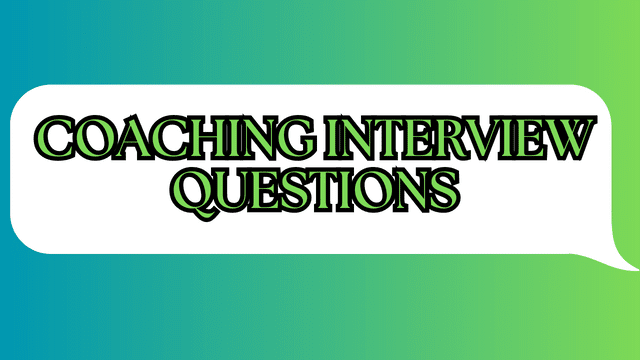Executive Coaching Interview Questions: Unlocking Leadership Potential
In the fast-paced and ever-changing business landscape, executives play a crucial role in guiding organizations towards success. As leaders, they face unique challenges and responsibilities that require exceptional skills and competencies. To help executives enhance their performance and reach their full potential, many organizations and individuals turn to executive coaching.
Executive coaching is a collaborative and personalized development process that aims to unleash an executive's capabilities, strengthen their leadership skills, and drive organizational growth. One of the key aspects of executive coaching is the interview process. In this article, we will explore some important executive coaching interview questions that can help organizations and coaches identify the right candidates and foster their professional growth.
The Importance of Executive Coaching Interview Questions
Conducting a thorough interview is vital in executive coaching to ensure the right fit between the coach and the executive. By asking targeted questions, coaches can gain insights into the executive's strengths, areas for improvement, goals, and aspirations. Additionally, interviews help establish trust and rapport, which are critical for a successful coaching relationship. Here are some essential executive coaching interview questions to consider:
1. What are your current professional goals and aspirations?
This question allows coaches to understand the executive's ambitions and align them with the organization's objectives. It helps identify whether the executive has a clear vision for their future and whether they are driven to achieve it. Subsequently, coaches can tailor their coaching approach to support the executive in realizing their goals.
2. What specific challenges do you face in your current role?
By asking about the executive's challenges, coaches can gain valuable insights into the areas where the executive might need assistance. This question sheds light on potential obstacles to their success and enables coaches to customize their coaching strategies accordingly.
3. How do you handle conflicts and difficult conversations within your team or organization?
Conflict management and effective communication are critical leadership skills. Understanding the executive's approach to handling conflicts provides coaches with an opportunity to offer guidance and techniques for resolving issues constructively. This question helps assess the executive's interpersonal skills and their ability to navigate complex organizational dynamics.
4. Describe a time when you faced a significant leadership challenge. How did you handle it?
Asking about past experiences allows coaches to gauge an executive's decision-making abilities and resilience in challenging situations. It provides insight into their leadership style and problem-solving skills, helping coaches identify areas for improvement and growth.
5. How do you prioritize your time and manage your workload effectively?
Time management is crucial for executives who often face multiple responsibilities and competing demands. By understanding an executive's approach to prioritization and workload management, coaches can offer strategies and techniques to optimize productivity and enhance work-life balance.
Conclusion
The executive coaching interview process is a critical step in selecting the right coach and setting the stage for a successful coaching journey. Through targeted questions, coaches can assess an executive's goals, challenges, leadership abilities, and potential areas for growth. By conducting comprehensive interviews, organizations and coaches can ensure a strong fit between the coach and the executive, leading to transformative results and unlocking the executive's full leadership potential.
Remember, the executive coaching interview questions mentioned above are just a starting point. Tailor your questions based on the unique needs of the executive and the organization to maximize the impact of executive coaching. With the right questions and a collaborative coaching approach, executives can embark on a transformative journey that propels both personal and organizational success.
